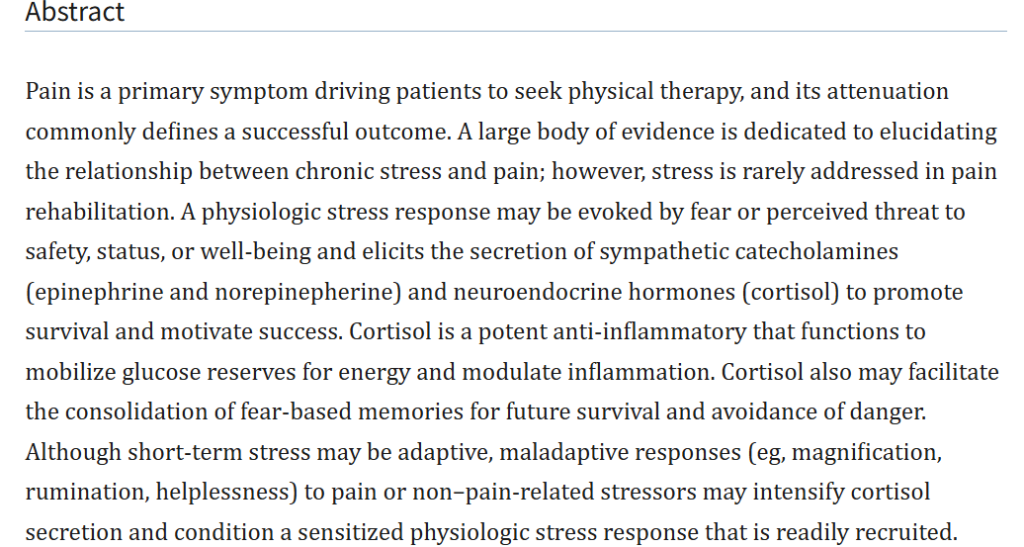Have you ever stopped to wonder if your cells are listening to you? Not just to the food you eat or the water you drink, but to your thoughts, emotions, and beliefs? Science tells us they are. Every thought you think, every emotion you feel, and every belief you hold sends a message to your cells. These silent conversations are constantly shaping your cellular health and, ultimately, your overall well-being.
Now, let’s not underestimate the power of these messages. Positive reinforcement—like joy, gratitude, and love—can nurture and heal your cells. On the other hand, negative emotions such as chronic stress, fear, and self-doubt can do quite the opposite. These harmful messages can lead to prolonged stress, trigger inflammation, and even manifest as physical symptoms—what we often call psychosomatic issues. Think about digestive troubles, unexplained fatigue, recurring headaches, or even weakened immunity. These aren’t just random occurrences; they’re your body responding to cellular stress.
What’s fascinating is that your cells don’t just react to what’s happening now—they remember. This concept of cellular memory means that repeated emotional states or traumatic experiences can influence how your cells function long-term. The good news? Just as they can store stress, they can also store healing. You can create an environment that promotes regeneration and balance by consciously feeding your cells positive messages, whether through your thoughts, lifestyle, or daily habits.
Today, I want to talk about how cellular regeneration works, how emotions and beliefs impact your health and actionable steps you can take to rewrite the story your cells are holding on to.
You can heal and thrive on a cellular level, let’s explore how.
Table of Contents
ToggleUnderstanding Cellular Memory: The Stories Your Cells Remember
Our cells are more than mere building blocks; they possess the remarkable ability to store and recall information from our experiences—a phenomenon known as cellular memory. This means that the emotions we frequently experience, whether positive or negative, can leave lasting imprints on our cells, influencing how they function over time.
For instance, chronic stress can lead to the overproduction of cortisol, a stress hormone that, when persistently elevated, may impair memory and cognitive function.

This constant state of heightened alertness can cause our cells to become more reactive, perpetuating a cycle of stress and cellular strain. Conversely, consistently fostering positive emotions like joy and gratitude can promote resilience, encouraging our cells to function optimally and support overall health.
By being mindful of the messages we send through our thoughts and emotions, we can shape our health outcomes. Intentional positive messaging can help reprogram our cellular responses, paving the way for improved well-being and vitality.
Psychosomatic Symptoms: When Cells Speak Through the Body
Unprocessed trauma and chronic stress don’t just affect our minds; they manifest physically, leading to what we call psychosomatic symptoms. These can include chronic fatigue, digestive issues, tension headaches, and even autoimmune flare-ups. But how does this happen?
When we experience stress, our bodies release cortisol to help manage the situation. However, prolonged stress keeps cortisol levels elevated, which can disrupt various bodily functions. For example, elevated cortisol can impair the hippocampus, a brain region crucial for memory and learning, leading to cognitive challenges.

Additionally, chronic stress can alter the hypothalamic–pituitary–adrenal (HPA) axis, leading to hormonal imbalances that affect immune function and increase susceptibility to diseases.

Addressing the root causes of these symptoms—unresolved stress and trauma—is essential rather than just treating the physical manifestations. By doing so, we can restore balance to our cellular environment, alleviating psychosomatic symptoms and promoting holistic health.
Vibrations and Frequencies: Insights from the Water Experiment
Dr. Masaru Emoto’s groundbreaking water experiment demonstrated that water exposed to positive words, soothing music, or harmonious frequencies formed beautifully intricate crystals when frozen. In contrast, water subjected to negative words or chaotic vibrations produced distorted, irregular patterns. This fascinating discovery illustrates how vibrations and frequencies can influence matter at a molecular level.

Now, I want you to think about this: our bodies are approximately 70% water. Just as water responds to external influences, so do our cells. Positive vibrations—whether from uplifting music, kind words, or even sound therapy—can create an environment that supports cellular repair, relaxation, and optimal function. Conversely, chronic exposure to stress, negativity, gossip, or harsh frequencies may disrupt this harmony, leading to cellular stress and inflammation.
Sound therapy, for example, has shown promise in promoting relaxation and reducing cortisol levels. Practices like chanting, listening to nature sounds, or repeating positive affirmations can help align cellular vibrations with a state of balance and healing. Scientific studies on frequencies also highlight their role in cellular repair, particularly in processes like DNA synthesis and wound healing. By consciously curating the vibrations around us, we can nurture a cellular environment conducive to well-being and regeneration.

Cellular Regeneration: The Cycle of Renewal and Its Implications
Did you know that your body is constantly renewing itself, cell by cell? This amazing process, called cellular regeneration, is what allows your body to heal, adapt, and stay vibrant. It’s like an ongoing repair mechanism, silently working to replace old, worn-out cells with fresh ones.
Here’s a fascinating timeline to give you an idea of how it works:
- Skin cells: Renew every 28 days, giving your skin the ability to heal and adapt quickly.
- Gut lining: Regenerates in just 2–5 days, highlighting how resilient your digestive system can be when nourished well.
- Red blood cells: Live for about 120 days before they’re replaced, ensuring oxygen delivery throughout your body.
- Liver cells: Take 150–500 days to regenerate, showing the liver’s incredible capacity for recovery when treated kindly.
But here’s the thing—this natural renewal process doesn’t happen in isolation. Factors like chronic stress, poor nutrition, and lack of sleep can disrupt it. For instance, high cortisol levels from prolonged stress can slow down skin regeneration, leaving your complexion dull and prone to issues. Similarly, an unhealthy gut environment can hamper the renewal of intestinal cells, impacting digestion and immunity.
The Takeaway? Your daily habits have the power to either support or hinder this cycle.
A balanced plate rich in antioxidants can provide the building blocks for cell repair. Prioritizing restful sleep gives your body the downtime it needs to reset. Managing stress through mindfulness or breathwork helps create a cellular environment that thrives.

Think of cellular regeneration as your body’s chance to hit refresh. Every choice you make—whether it’s the food you eat, the rest you take, or the way you manage stress—gives your cells the tools they need to keep you healthy and resilient. This ongoing renewal isn’t just science; it’s an empowering reminder that you have the ability to influence your health on a cellular level, every single day
Healing Cellular Messages: A Holistic Blueprint for Wellness
Cellular health goes beyond emotional health and psychology. If you take care of only one aspect of your well-being while ignoring the rest, you’re still not going to feel great. Whether you’re already healthy, seeking to improve your lifestyle, or managing a chronic condition, a 360-degree integrative is an essential stepping stone.
Have you ever thought about the messages you’re sending your cells every single day? Every meal, every thought, and every feeling is like a text message to your body’s cells. Are you telling them to heal, grow, and thrive—or are you unintentionally sending stress signals? Let’s break it down into simple, practical steps across the six pillars of lifestyle.

Deep Cellular Nutrition
What’s on your plate is more than just fuel; it’s information for your cells.
- Omega-3s from foods like salmon, walnuts, and flaxseeds help calm inflammation.
- Antioxidant-rich fruits and veggies—berries, spinach, and carrots—protect your cells from damage.
- Magnesium, found in seeds, almonds, and dark chocolate, helps regulate stress and promotes relaxation.
Here’s something simple you can try: At your next meal, think about adding more color to your plate. Each color carries a different nutrient your cells need to function at their best. A handful of nuts, some roasted veggies, or even a square of dark chocolate can make a difference.
And don’t forget your gut! Your gut is the communication hub for your body, sending signals to your brain and your immune system. Include prebiotic, probiotic, and fermented foods like yogurt or pickles, and drink enough water to keep everything running smoothly.
Adequate Movement
Are you moving enough—or too much? Movement helps oxygenate your cells, supporting their ability to repair and energize you. But overdoing it, like pushing through intense workouts every day, can send stress signals instead of healing ones.
Think about what works for you.
If your energy feels low, take a walk, do some light yoga, or even stretch at your desk. Sometimes, less is more. End your workout with a relaxing stretch or even five minutes of Shavasana to signal your cells that it’s time to relax and repair.
Quality Sleep
When was the last time you woke up feeling refreshed? Sleep isn’t just about resting your mind—it’s when your cells do their maintenance work. Without it, your body struggles to regulate stress and heal effectively.
Tonight, try this:
Keep your phone out of the bedroom, dim the lights an hour before bed, and make your room as cool and quiet as possible. Sleep isn’t a luxury—it’s the foundation of your cellular health. Even small tweaks to your routine can help your body reset and recharge.
Emotional Wellness
Have you noticed how your mood affects your energy? Chronic stress or sadness sends your cells into survival mode, while moments of calm and joy give them space to heal. It’s not about being happy all the time—it’s about managing how you process stress.
Shaping Your Health Outcomes:
Visualization and affirmations In our 13+ years of experience, we’ve witnessed firsthand how it makes a difference when we encourage individuals to take control of their health with this approach. Visualization, where individuals mentally ‘write their prognosis by picturing positive outcomes as if they’re already achieved, has been shown to foster cellular responses that support recovery and well-being. It is an exercise we make our patients go through chemotherapy, radiation, surgery, and IVF treatment.
This mental blueprint guides your cells, encouraging a state of wellness.
Try it for yourself:
| Belief Reframing: Shift from fear-driven thoughts to empowering beliefs. Replace worries with affirmations like, “My body is resilient.”
Visualization: Practice visualizing your body’s cells as vibrant and healthy. Imagine them glowing with vitality, actively supporting your health. |
Reconnecting with Spirit
What makes you feel grounded? It could be meditation, prayer, or even a walk outside. When you feel connected to something bigger than yourself, your body feels it too. That calmness translates to your cells, telling them it’s safe to heal.
Today, take five minutes to pause. Step outside, look at the sky, or just close your eyes and breathe. That small moment of calm can create a ripple effect for your cells.
Breath
When was the last time you really noticed your breath? Shallow, fast breathing keeps your body in stress mode, but slow, deep breaths signal your cells that it’s time to relax. It’s one of the simplest ways to lower cortisol and reduce tension.
Try this right now: Breathe in deeply for a count of four, hold for four, and exhale for six. Repeat this a few times and notice how your body feels. It’s a small habit that can make a big difference in how your cells respond to stress.
Building Cellular Health
Your cells are listening. Every meal you eat, every thought you think, and every time you move, you’re shaping their response. So why not make it count?
Start small:
- Add one colorful food to your meal today.
- Take five deep breaths when you feel stressed.
- Move your body for just 10 minutes—anything that feels good.
- Sing a song that reminds you of a happy moment in your life.
- Express gratitude for one thing in your life.
The key is consistency, not perfection. You don’t need to overhaul your life in one day. Just focus on one positive change at a time.
Over weeks and months, these small efforts will add up, creating a healthier, stronger foundation for your cells—and your overall health. So, what message will you send to your cells today?
Take Charge of Your Cellular Health
Your cells are always listening. By becoming conscious of the messages you send them. you empower yourself on a profound level. Start today by choosing thoughts and habits that support your well-being, giving your body the best possible foundation for a healthy, resilient life.
A version of this article appeared on the Mint Platform.
Ready to make your health your priority?
Start your journey with one positive action today.
Check Out Our Wellness Program.
Looking for personalized advice? Our experts are ready to help you thrive.
Reach Out to Team Luke’s Integrative Health Coaches!
Book a one-on-one with our team: 1800 102 0253 or write to us at [email protected].
Team Luke
Our team of registered dietitians, certified nutritionists, lifestyle coaches, medical practitioners, and holistic health experts come together to share practical, accessible insights for your well-being. Whether you're seeking tips on preventive health, managing a specific condition, or simply looking to live a more balanced life, you’ll find a wealth of easy-to-apply knowledge here.
Start Your Wellness Journey
Feeling inspired to take the next step in your wellness journey? Connect with us to explore how our tailored programs can support your health journey. Your transformation is just a conversation away.



